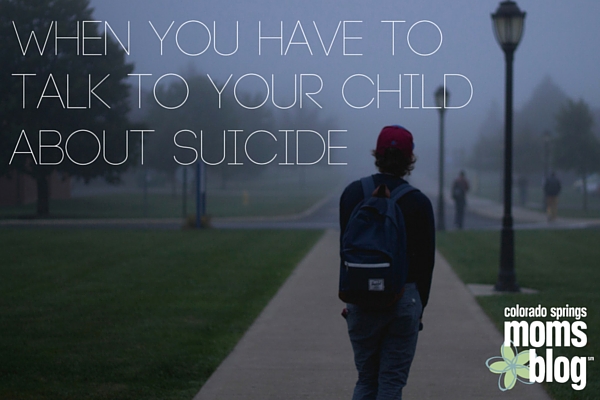Our community has experienced what seems like an influx of suicides. In fact, just last year, Colorado lost 1,058 people to suicide, setting a disturbingly new state record and placing us at the seventh highest rate of suicides in the nation. (source) We’ve tragically lost lives of children and teens that were teeming of potential but abruptly cut short. And in hindsight, we search for the reasons, we search for the warning signs, and we try to understand – but we’re left standing empty-handed.
What do we do? How do we proceed?
My first encounter with suicide happened while I was attending school to acquire my Masters Degree. It was sudden, unexpected, and unfathomable. Losing a peer left an indelible mark on me, reminding me of the power of community in both the role of advocacy, and in grief. It also fueled my passion even more to become a School Counselor.
Once in the schools, suicide became a familiar conversation topic. Referred to me by teachers or friends, I met with many students (ranging from Kindergarten through Eighth Grade) to evaluate their suicidal ideation. While those conversations were difficult to navigate, they were necessary and important – as one simple conversation could be all that a student needed to get the help that they required.
Through my experience in those often sobering meetings with students, I’ve gained a few important conversation tools that might be especially helpful to parents of all children, of all ages, not just of those who may be contemplating suicide.

Be Bold
As a parent, it’s your job to have the hard conversations. There’s no right or perfect way to do this -but just doing it is what’s important. Trust your instincts, stay calm, and know that having this conversation is invaluable – it could save your child’s life. However, remember that being bold in this circumstance is not the same as being overbearing, aggressive, or assumptive. By approaching your child in these ways, with a topic of this nature, you can be certain they will shut down and shut up.
Be Direct
Get straight to it. If you aren’t clear in what you are wanting to know, it’s a lot easier for your child or teen to evade the truth. Don’t be afraid to ask, “Are you thinking of killing yourself?” Avoid using terminology such as, “Are you thinking of ending it all?” This isn’t helpful and could leave you with doubt as to their intentions. In addition, asking a direct question will require a direct answer – and although definitely not always the case, my personal experience has shown me that often those who are thinking about committing suicide desire to be found out and want to be helped.
Be Present
If they say “YES”- don’t panic, don’t lecture, and don’t mobilize all your resources- just yet. This is the time to listen, to love, and to reflect. Validate their choice to share this incredibly hard thing with you, and try to understand their perception on how things are for them right now. After everything is out in the open, create a plan to get support and be sure to follow through with that plan immediately.
If they say “NO”, remind them that you are are a safe, non-judgmental person to talk to and a constant source of support. If you still feel concerned for their mental health, even after having a direct conversation- consider using a local therapist, a school counselor, or another trained mental health professional to ask questions and seek clarity.
All this information would not be complete without immediate access to understanding the risk factors, the signs, and the resources for suicide. Often, we see mental health as a reactive stance to our care – focusing on when things go wrong, rather than investing in proactive progress. Thus, it’s additionally important to address teen depression, bullying, and have a thorough understanding of cutting and how these all are undeniably present in our schools today.
If you, or someone you know is thinking about suicide please consider calling the Colorado Crisis and Support Hotline. When you call, you will speak to a trained mental health professional rather than a volunteer. Call 1.844.493.TALK (8255)
Other emergency and counseling hotline numbers are listed here.













